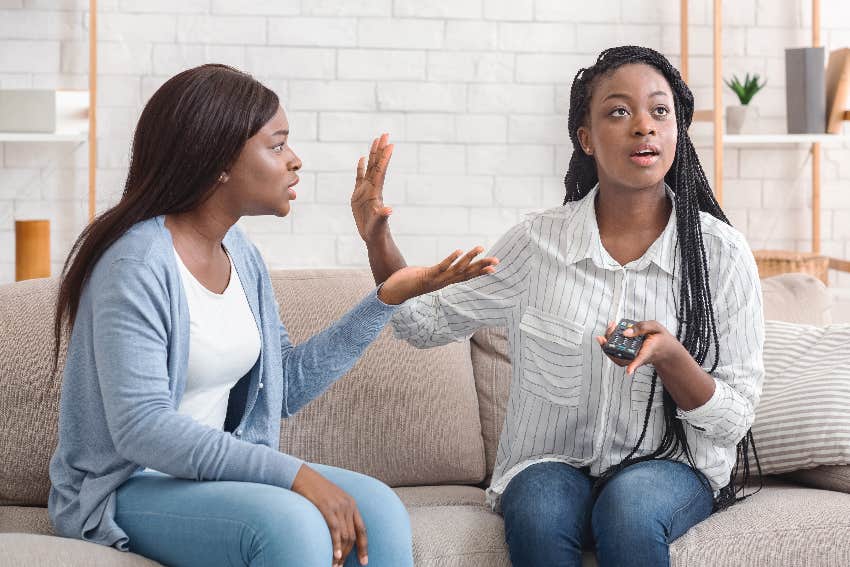Deeply Unlikable People Often Display These 3 Involuntary Behaviors
You can't force someone to stand your company.
 Ehsan Ahmadi | Unsplash
Ehsan Ahmadi | Unsplash You know when you're venting along the lines of "Why don't people like me?" and a friend tells you that it's probably nothing personal? Well, what if it is? In an ideal world, we'd all be well-liked by friends, acquaintances, and strangers alike.
But reality paints a different picture — it doesn't matter how nice or friendly we are, there will always be people who don't like us — and there will always be people that we find deeply unlikable. We can't always chalk it up to someone having a bad day.
It can feel like a hard pill to swallow, especially if you have people-pleasing tendencies. Take heart though, and realize that it's not just you — it's something we all have to deal with.
Deeply unlikable people often display these involuntary behaviors:
1. They're arrogant or haughty
There's a fine line between confidence and arrogance that's easily blurred. Thanks to the media, "attractive arrogant character" tropes have been widely popularized.
While it's amusing and/or endearing on TV, it's certainly not the case when you're dealing with someone face-to-face. Coming off as a condescending individual will rub people the wrong way.
Whether you think you're arrogant or not, it's always helpful to assess your body language and behavior. Try to think of how you're presenting yourself to others and what changes you can make to avoid coming across this way.
2. They aren't a good listener or communicator
 Prostock-studio / Shutterstock
Prostock-studio / Shutterstock
By now, it's a well-known fact that attentive listeners are deemed more likable. There's a reason for that — people who are good listeners make others feel validated. They cultivate positive energy in their interactions by treating other people with respect and dignity.
If someone thinks you have a short attention span or that you simply don't care about what they have to say because you can't stop talking about yourself, this can put them off. Additionally, if you tend to communicate in ways that are viewed as disrespectful, this may also lead to someone disliking you.
Many people overestimate their listening abilities, leading to poor listening habits. Individuals may be distracted, think about what they want to say next instead of actively listening, and make assumptions about the speaker's message, resulting in misunderstandings.
A study published in Psychological Science showed that people only retain about half of what others say in a conversation, highlighting the common issue of poor listening skills.
3. They're overly negative
 fizkes / Shutterstock
fizkes / Shutterstock
We're not talking about the occasional bad day or venting to your friends and family when you need to. All of those things are perfectly normal (and healthy, even!) But being overly pessimistic in general pushes people away.
People are drawn to those who are positive largely because that energy is infectious. It makes them feel good, too. If others feel that you bring them down, they may not want to spend much time with or around you.
There are some signs that someone doesn't like you that you can look for. If you're not sure whether or not someone's disdain for you is something your brain is perceiving or grounded in reality, Perras notes that there are potential signs someone dislikes you. These include:
- Dismissive/unreceptive body language
- A lack of interest in you or what you have to say
- Someone always being "busy" whenever you want to meet
- Negative feedback on your opinions
- Talking down to you in discussions
- Discounting your knowledge and accomplishments.
If you think people don't like you, there are a couple of ways to handle it. Keya Murthy, a clinical hypnotherapist and spiritual life coach, points out the difference between an anxious thought and a genuine assessment of whether or not someone likes you.
"To like or not like someone is deeper than physical reactions. It’s also a gut feeling," says Murthy. "Women have it, empaths most certainly know when someone does not like them. When someone genuinely dislikes you, they will tell you in clear words. You might have someone close to you tell you if you ask them about it."
At the end of the day, if someone truly doesn't want to be around you, there's no point in forcing yourself on them. This can be painful, especially if we like the person in question, but it's in our interest and theirs to move on and find others we do click with instead. Hanging around will only lead to more misery and frustration.
Murthy notes that avoiding someone isn't always the answer, especially if they're a family member or coworker. At that point, you'll have to hone your skills. "If them liking you is important to you, then make an effort. Find something common and strike a conversation," she adds.
"Ask them if you could do something for them. And, when all these indirect methods do not work, ask them directly, 'What about me don’t you like? Is there something I can do to make it easier for you, so we can work together or a family together in harmony?'”
Yona Dervishi is a freelance writer who covers topics about acceptance, wellness, news, and entertainment.

